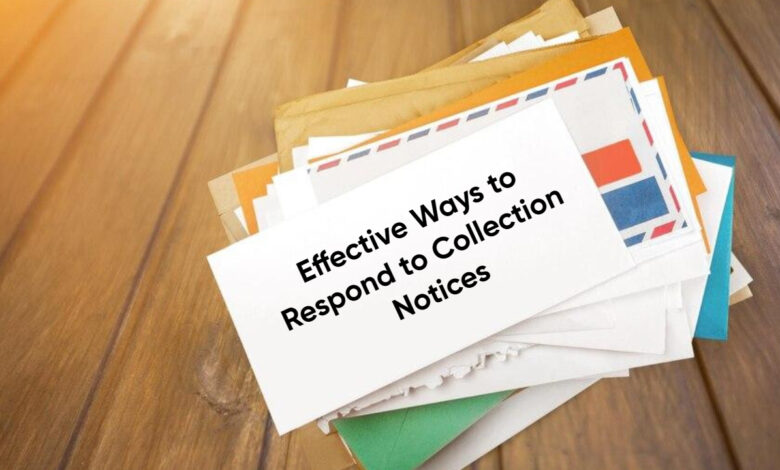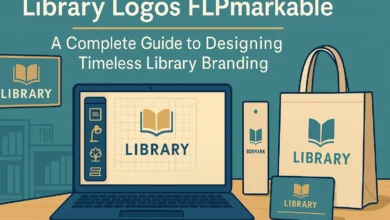Effective Ways to Respond to Collection Notices

Receiving a collection notice may seem overwhelming at first, but it’s important to stay calm and approach the situation thoughtfully. A collection notice typically means that you have an outstanding debt that has not been paid on time, and a creditor has referred your account to a collection agency. While the idea of dealing with debt collectors can feel intimidating, you have several effective strategies at your disposal to address the issue and protect your financial well-being. By taking a proactive approach, you can resolve the matter and regain control of your finances.
Here are some practical and strategic ways to respond to collection notices:
1. Know Your Rights- How To Respond To A Summons
One needs to know about their rights in the case of collection agencies. The FDCPA in the U.S. safeguards consumers against abusive or unfair practices by debt collectors. A few of its major provisions include:
- No Harassment: Collectors can’t call you at odd hours, use abusive language, or threaten to hurt you.
- Written Communication: In case you demand, the debt collectors have to stop calling you and only correspond with you in writing.
- Right to Dispute: You can dispute a debt if you believe it’s wrong.
In California, if a creditor files a case against you, you may receive a summons. Understanding how to respond properly is of the utmost importance because knowing how to respond to a summons in california can help avoid any potential legal consequences, such as a default judgment that may adversely affect your financial position.
2. Verify the Debt
First, confirm that the debt is yours before taking any action. Sometimes, there are errors, and you might get a notice claiming a debt that doesn’t belong to you. Make sure that all the details written on the notice are correct, from the amount owed to the creditor and account number.
- Request Documentation: You may demand the creditor produce evidence to support his contention that you owe him the money under the FDCPA. This is called a “debt validation letter.” The collector is obligated to furnish this to you within 30 days from when you sent the debt collection notice, indicating you are requesting verification that the debt exists.
- Check Credit Report: Also, you check your credit report to verify that the debt exists. When the debt doesn’t appear in the report, it might have been a mistaken entry, so you can appeal against the debt claim.
3. Stay Calm and Professional
It can be very stressful, but at this point, try to control your emotions and give the proper response. Being furious or panicking does not solve the problem, instead, try to stay calm and be professional while responding to the collection agency.
- Keep a Record of Communication: Maintain a record of all communications made with the debt collector, whether by phone call, email, or letter. Write down the names of representatives you communicate with, the dates of conversation, and what was discussed during the conversation.
- Avoid Making Quick Decisions: There are times when people feel pushed into paying immediately or agreeing to a repayment plan, but one should take their time and assess the situation fully before agreeing to anything.
4. Assess Your Financial Situation
Now that you’ve verified the debt is legitimate, it’s time to determine your finances. Can you pay for it in full? Or a partial payment or a payment plan would be more feasible according to your budget? Take careful consideration of your options and review your overall financial outlook.
- Negotiate for Reduced Payment: In most cases, collection agencies can settle for something less than a full payment. If you happen to have all the money in one block, you could negotiate a “settlement offer.” This is a deal where a collector agrees to accept a lesser payment to balance the debt in question. And make sure this agreement is reduced to writing.
- Develop a Repayment Plan: If you cannot pay the full amount at once, propose a suitable payment plan. The agency may accept this, but be sure that the terms are clearly stated and put in writing before proceeding to make payments.
5. Consider Professional Help
If you feel you cannot handle the process, it will be wise to seek professional advice from a credit counselor or an attorney. Credit counselors can guide you in evaluating your situation, budgeting, and negotiating with creditors on your behalf. Debt collection attorneys may also provide you with legal counsel and represent you if the situation becomes a matter for the courts.
- Credit Counseling: Non-profit organizations can also provide you with free or low-cost credit counseling so that you negotiate with the creditors and prepare an effective plan of debt repayment.
- Debt Settlement and Bankruptcy: In extreme cases, a formal debt settlement or bankruptcy becomes necessary if no amicable debt resolution can be achieved. Keep in mind, however, bankruptcy has severe long-term effects so it would do well to contact a bankruptcy lawyer before deciding anything.
6. Pay or Settle the Debt if Possible
If you can pay or settle the debt, it is usually a good option, especially to avoid further collection activity or damage to your credit score. After paying or settling the debt, ensure the collections agency reports it to the credit bureaus as “paid” or “settled”.
- Request a Written Agreement: If you accept a settlement, ensure the agreement is made in writing regarding the amount settled for, how soon to pay the debt, and the method it will be reported to the credit bureaus. Wait for them to provide this written agreement before paying.
- Confirm Payment: After paying off or settling the debt, confirm with the collector that this debt is deemed paid and closed, and require written documentation that the amount has been paid in full.
7. Monitor Your Credit Report
After paying and settling with the collection agency, monitor your report for the status of the debt marked as paid or settled. Your credit report should therefore be kept up to date to ensure that all inaccuracies are corrected before they are too serious.
- Free Credit Reports: Each of the three major credit bureaus (Equifax, Experian, and TransUnion) provides you with the right to one free credit report per year. Use this as an excuse to check your credit, ensuring that the debt is correctly reported.
FAQs
1. What should I do if a collection agency calls me?
If a collection agency calls, remain calm. Request written validation of the debt, and do not agree to any payment over the phone without verifying the details.
2. Can I stop collection calls?
Yes, you can request that debt collectors cease contacting you, either by phone or by mail. After your request, they must communicate with you only in writing.
3. What happens if I ignore a collection notice?
Ignoring a collection notice can lead to further collection actions, such as a lawsuit, wage garnishment, or damage to your credit score. It’s better to address the issue promptly.
Conclusion
Balancing assertiveness with calm and knowing your rights can help you effectively respond to collection notices. Verify the debt, know your financial position, negotiate wherever possible, and seek professional help when necessary. With these steps, you will be able to find a solution that does not threaten your financial stability or peace of mind. Stay abreast of your rights, clearly communicate with creditors, and explore all your options before making any decision that could impact your financial future.




